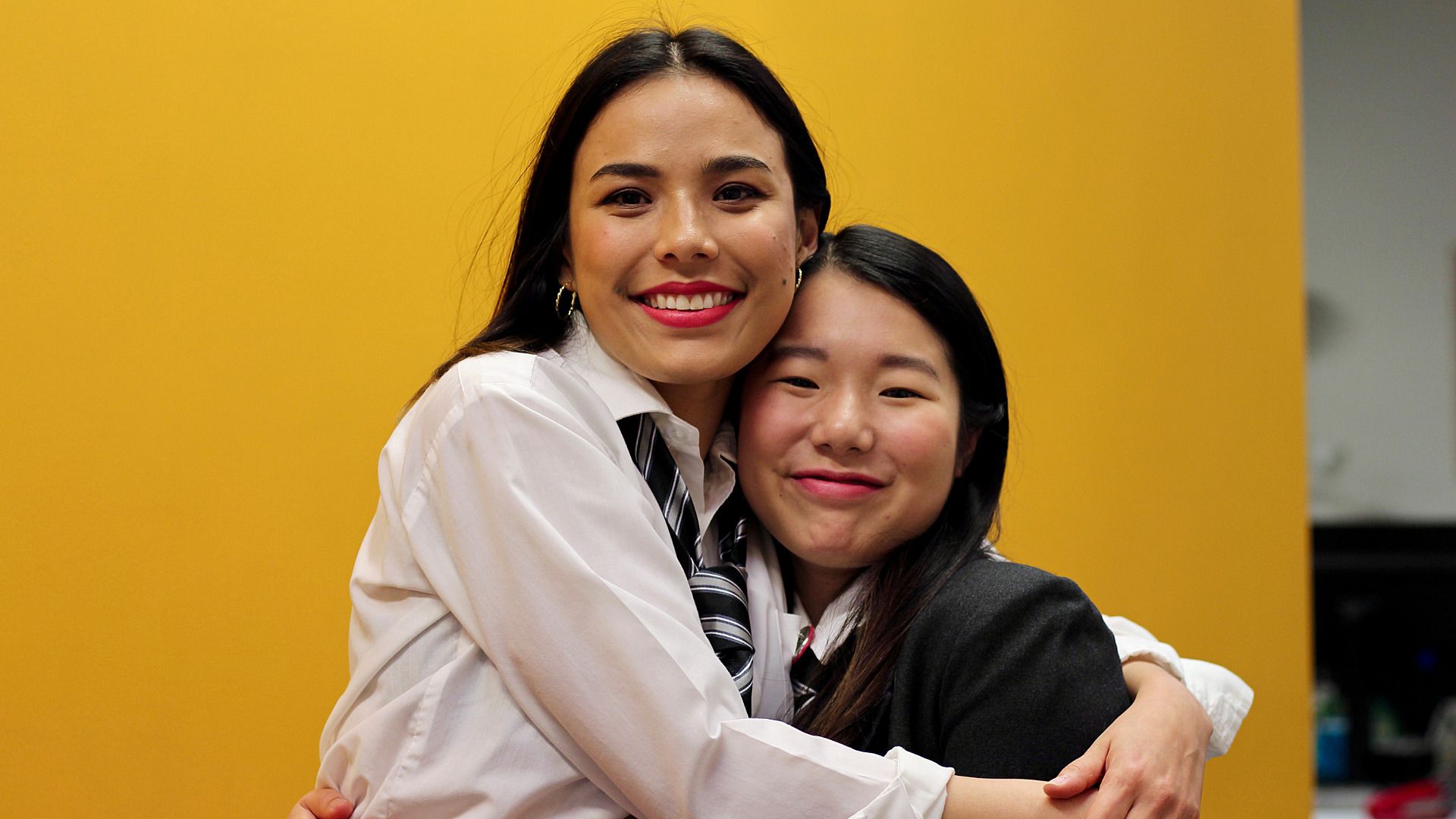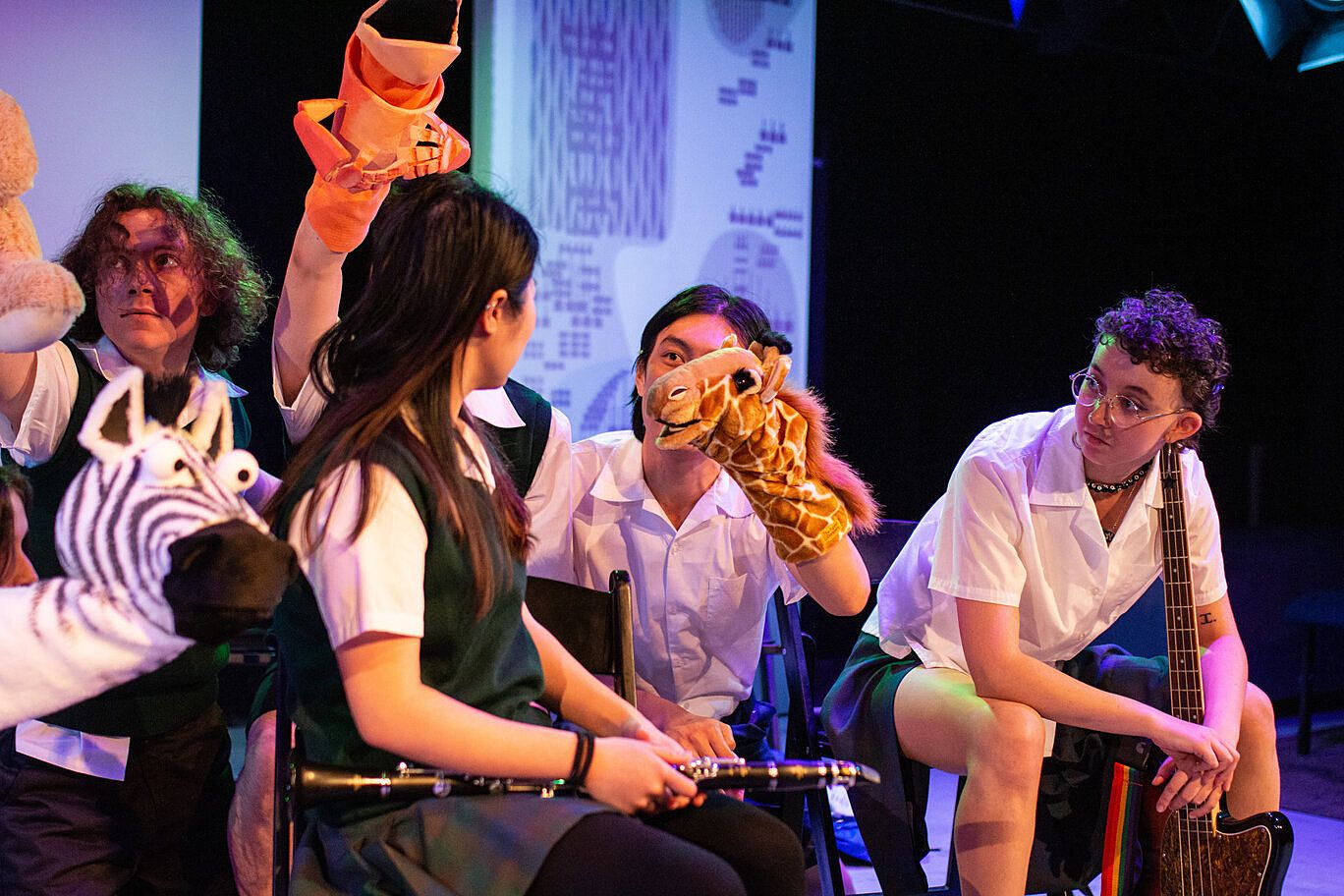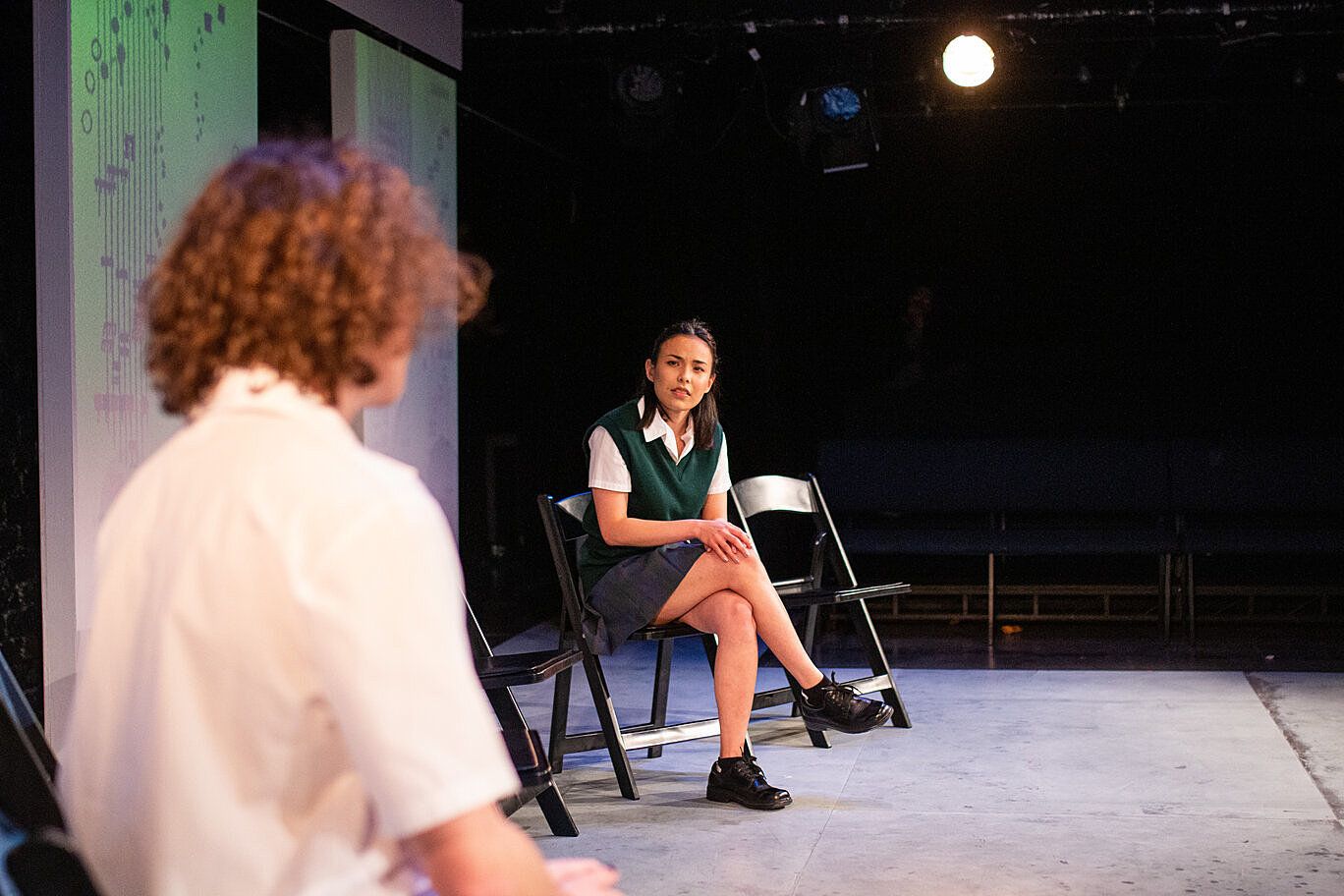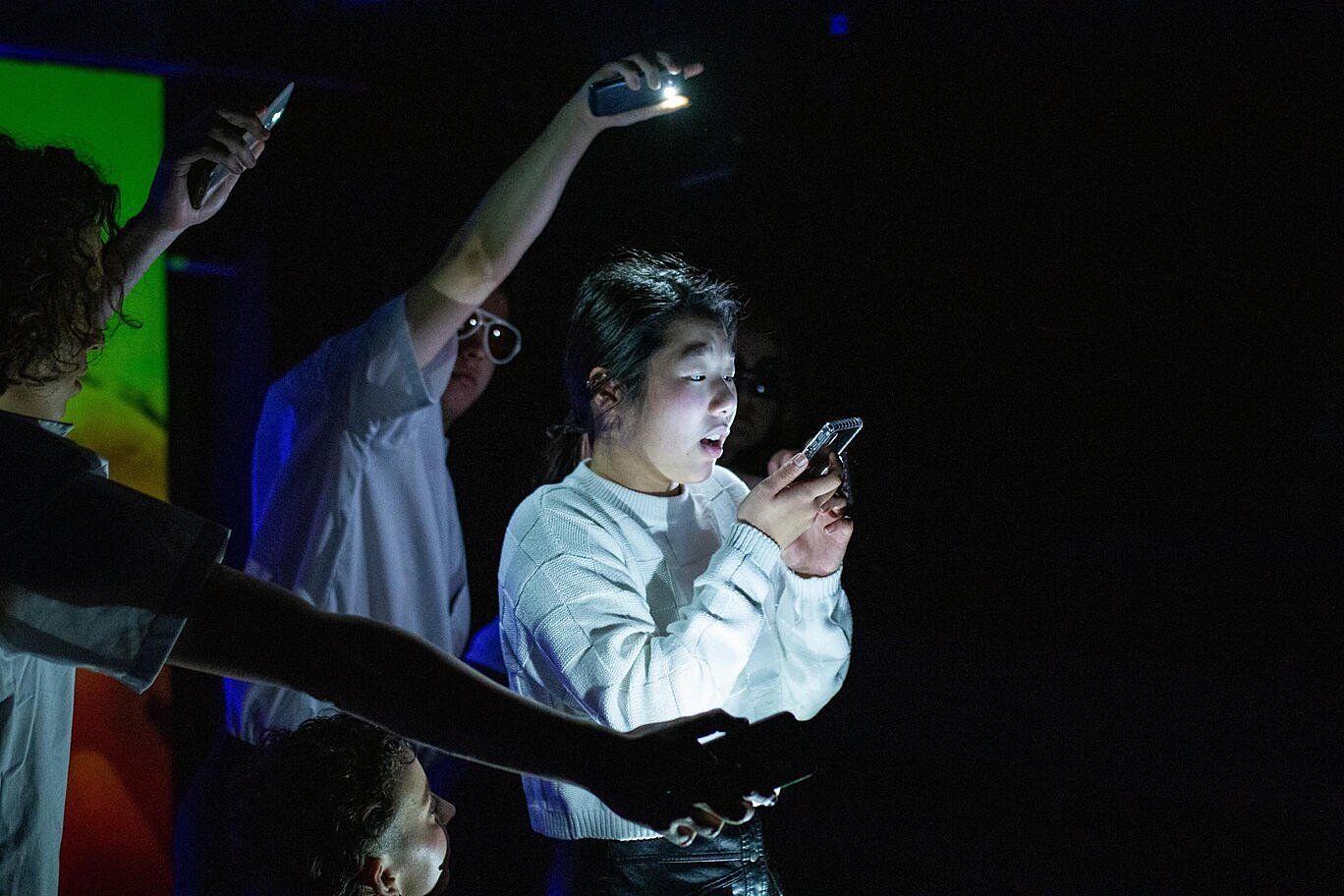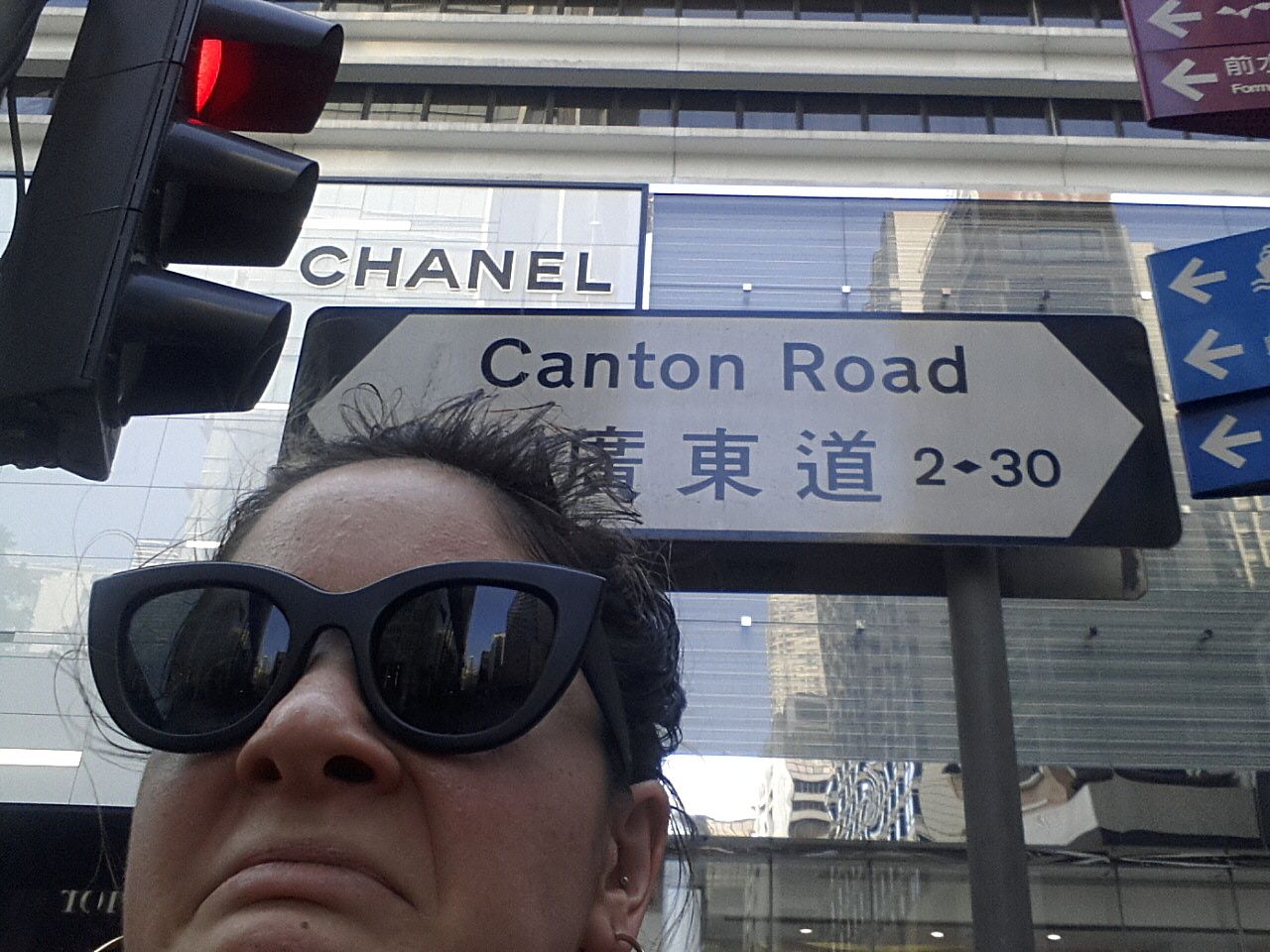Young, Queer, BIPOC: A Response to Yang/Young/杨
Growing up Chinese in Aotearoa is a turbulent experience. Alice Canton remembers her own coming-of-age filled with uncertainty and longing in her response to Auckland Theatre Company's brand new Gen-Z play.
Being a teenager, from memory, was never fun. It was in fact, from memory, pretty fucking insufferable. A constant barrage of confusing, mostly conflicting thoughts: identity; popularity; dating (although I don’t remember calling it that); belonging; What are we Doing for New Year’s; alcohol; mind-numbing boredom; awe. Unlike the Jennas and Damos of the world (see: sociopaths), who fondly remember that period as the Best Times of Their Lives (see: you peaked in high school), I look back at those years with the acknowledgment that they were well and truly the Worst Years of My Life, and that I am to be celebrated for having survived them. Save a few patient friendships, nothing really seemed to help me get through the pain of my youth except for the idea of simply Getting Through It.
Photo: Benny Joy Photography
A part of the uncertainty and longing of my adolescence was the absence of seeing or hearing myself in the stories that prevailed on television, books, films and plays. The Holden Caulfields or Chers (of the Clueless kind) or any character played by Winona Ryder had a lack of self-awareness (see: The Invisibility of Whiteness) that I couldn't 'get'. How could they live in such blissful ignorance, crashing through life without observing the combative social forces of poverty, racism or familial duty affecting their developing lives? As a child of a migrant parent, I don't think my relentless pursuit of Needing to Understand How Things Work in order to translate both lofty and mundane ideas for my mum was unique, but it was a critical part of my identity. The way we become vessels to carry knowledge (or is it more transitional, like portals to accessing the world?). Where were those stories? Growing up in the world thinking you Maybe Don’t Exist isn’t an uncommon feeling for people with kaleidoscopic identities (see: The Diaaaaaspora) and yet, surprisingly, I find that stark realisation burps up on you as a Grown Adult when you encounter a coming-of-age narrative that truly speaks to what your life was, is, or could have been, as a young person in the world. For me, Yang/Young/杨 is that narrative.
Set against the backdrop of a New Zealand high school, Yang/Young/杨 dutifully lifts the tropes of the quintessential coming-of-age story with a contemporary, Gen-Z twist. We follow Poppy Young and Qiu Ju Yang as they navigate through the personal turbulence of their senior year (see: popular girl is dumped by heart-throb and spirals into self-loathing; nerdy girl catches the eye of the school rebel and glows up enough to realise she Had it in Her All Along). The setup reads like a scene from The Baby-Sitters Club, but don't be fooled by this simple premise. In addition to exploring themes found in the ‘classic canon’ of Western teen dramedy, Yang/Young/杨 folds in diasporic Asian experiences (see: growing up Chinese in Tāmaki Makaurau). It’s scored with cultural nuance so pointedly specific it transcends into the universally relatable and offers a truly touching insight into the inner life of the characters.
Photo: Benny Joy Photography
The dialogue is written in a mix of English, Mandarin and Shanghainese. Each language embodies a cadence and rhythm that colours the timbre of the spoken text with such richness. The politics of having a trilingual play presented by a mainstage theatre company in Aotearoa is not lost on me: the ears (and hearts) around me prick up with every exchange in a mother tongue, conversations landing with a deeper sense of knowing. My heart aches at the miscommunication between mother and daughter, met with familiar chuckles (and the occasional wince) from the (largely non-White) audience, as if we are finally seeing our lives played out in the shared experience of the theatre.
In addition to the ‘cultural’ paradigm, Yang/Young/杨 connects to a lineage of Queer coming-of-age storytelling (see: Love, Simon, Moonlight, Call Me by Your Name) through the exploration of Queerness and the coming-out narrative colouring the protagonists’ story arc (without necessarily consuming it). In the current, real-world climate in which identities are being policed by extreme, toxic violence, where groups within our rainbow community (see: QBPOC Trans Lives) are most vulnerable, the play gently reimagines a world in which the spectrum of sexuality (and gender) is No Big Deal. And not in a way that diminishes it, but simply resets a baseline. The dramatic tension isn’t in the realisation of Queerness, or even the expression (or shame), but in the inter-generational conflict of transparency, tradition, and acceptance. Spoiler alert: there isn’t a neat, tidy resolve, and the ways in which the characters show true compassion for each other through acknowledgement and respect bring a tear to my eye and are enough to make my Queer wee heart burst.
Photo: Benny Joy Photography
The cast of Yang/Young/杨 is full of charisma and dynamism, imbuing the snappy dialogue with energy and playful dexterity (I can't stop myself from cackling during the orchestra rehearsal and waiting-outside-da-club scenes, which play out like actual moments from my past). This comedic brilliance is balanced with moments of intimacy, with some truly moving performances in the more quiet, domestic scenes. The world of the play is a kind of ode to the noughties, with school uniforms and dresses drawn directly from the period. It pays homage to those iconic coming-of-age films of the era (see: 10 Things I Hate About You, Looking for Alibrandi). At the same time, the postmodern appropriation of iconography places the work in the now (pastel A-line ball gowns and strappy heels are celebrated unironically). The scenography is supported with well-considered accents of AV design and transitional choreography to move seamlessly from classroom to family home to street-side. It implies physical space but enables moments of full fantasy, where characters are suspended in their own thoughts (with some delightful puppetry to lift it into a theatrical dreamscape).
Yang/Young/杨 is a triumph of the hard work, tenacity and wit of writers Sherry Zhang and Nuanzhi Zheng. Carried by a stunning ensemble under the superb direction of Nathan Joe, with support from a glowing design and production team, the work takes the legacy of Auckland Theatre Company’s youth festivals and carries it forward into a new (see: young, Queer, BIPOC) future. When I reflect on what might have helped mitigate the perils of my teenage years, amongst the poetry and angst of Not Fitting In, I feel a comfort knowing that whatever it was that was missing back then has now well and truly been found.
